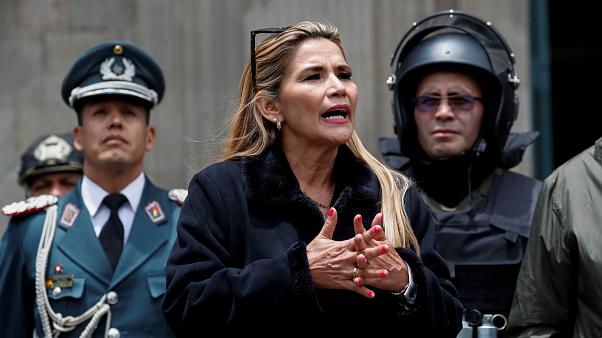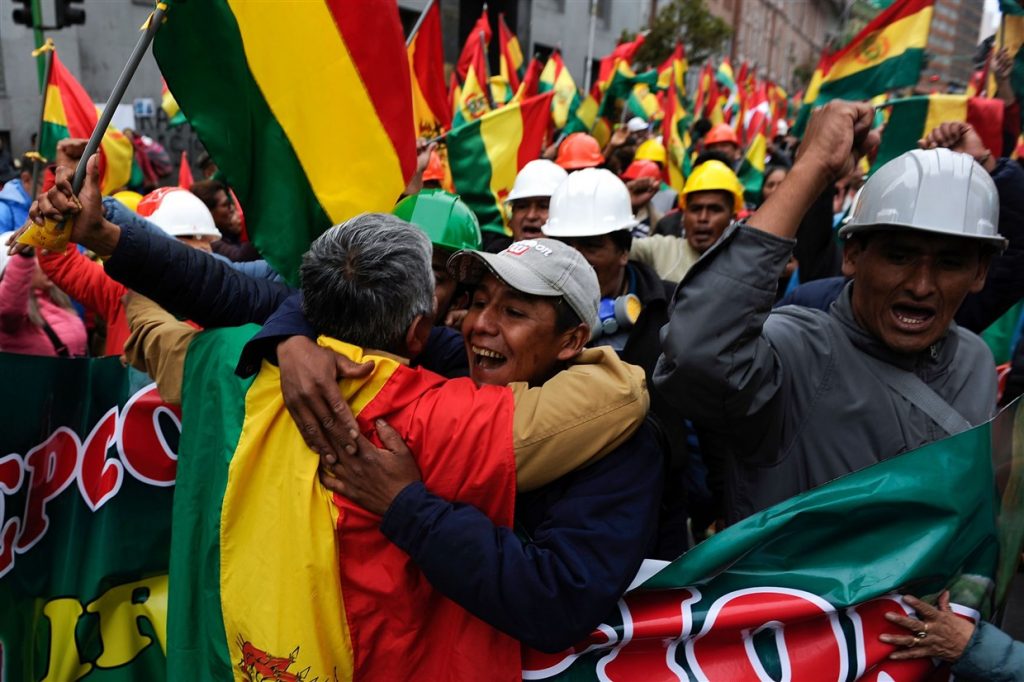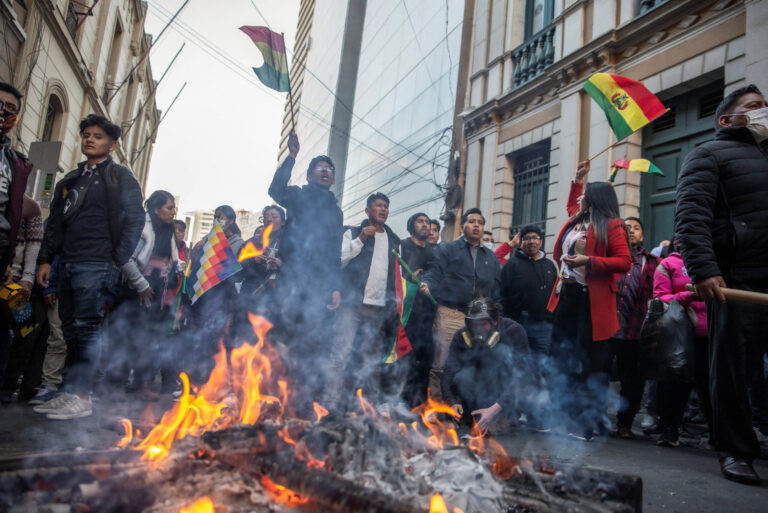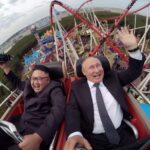The uprising was the culmination of the tensions that have been brewing in Bolivia for
months, with protesters streaming into the capital amid a severe economic crisis and
the battle between two political titans competing for the control of ruling party.
Armored vehicles rammed into the doors of Bolivia’s government palace on Wednesday,
June 26 th as President Luis Arce said his country had faced an apparent attempted coup.
The attempt to take over the palace appeared to have lacked any meaningful support.
The uprising was led by general commander of the army Juan José Zúñiga. He claimed to
establish a new Cabinet of ministers, but stressed he recognizes Arce as commander in
chief for now.
Zúñiga did not explicitly say whether he was the uprising’s leader, but in the palace,
with bangs echoing behind him, he said the army was trying to “restore democracy
and free our political prisoners.” Zúñiga had been detained on suspicion of the crimes of
terrorism and armed uprising at the entrance to the general staff headquarters in La Paz.
Arce ordered to withdraw his soldiers, saying he would not allow the insubordination. Later
on, he officially removed Zúñiga from his post. The new army chief, José Wilson Sánchez
Velásquez, appeared on state television alongside Arce and ordered the troops who
had hit the streets to return to barracks.
The tensions have been building in Bolivia ahead of general elections in 2025, with
leftist Morales planning to run against former ally Arce, creating a major rift in the ruling
socialist party and wider political uncertainty.
Zúñiga said that Morales should not be able to return as president and threatened to
block him if he attempted to do so. This statement made Arce to remove Zúñiga from
his position. Zuniga said he would arrest Morales if he insisted on running for office again in
- After this rumors have swirled that Zuniga was on the verge of being dismissed.
However, right before his arrest, Zúñiga told reporters that it was actually the president
who had told him to stage an uprising, thus triggering a crackdown that would make
him look strong and boost his sagging approval rating. But we have doubts that his
words were trustful.
It is likely, that Zúñiga attempted a coup by being motivated politically. The goal was
to overturn the democratically elected authority by using economic crisis and the
2025 upcoming elections (he could lose his position after it).
Besides Juan José Zúñiga, former navy Vice Adm. Juan Arnez Salvador was taken into
custody. Both men were dismissed by President Luis Arce and replaced after the uprising
began.
Bolivians have increasingly been suffering the pains of slow growth, surging inflation
and scarcity of dollars — a stark change from the prior decade that some called an
“economic miracle.
The country’s economy grew by over 4% nearly every year in the 2010s until pitching into
the abyss with the coronavirus pandemic. Trouble began earlier, in 2014, when
commodity prices plunged and the government dipped into its currency reserves to
sustain spending. Then it drew on its gold reserves and even sold dollar bonds locally.
Arce had served as a finance minister during nearly the entire decade of strong
growth, under leftist icon President Evo Morales. Upon assuming the presidency himself
in 2020, he encountered a bleak economic reckoning from the pandemic. Diminished gas
production sealed the end of Bolivia’s budget-busting economic model.
With this economic despair as a backdrop, president Arce and former leader Morales
have clashed in a political fight that has paralyzed the government’s efforts to deal
with it. For example, Morales’ allies in Congress have consistently thwarted Arce’s
attempts to take on debt to relieve some of the pressure.
Bolivia has had more than 190 coup attempts and revolutions since its 1825 independence
in a cycle of conflict between political elites in urban areas and disenfranchised by
mobilized rural sectors.
This isn’t even the first alleged coup attempt in recent years. In 2019, Morales, then Bolivian
first Indigenous president, ran for an unconstitutional third term. He won a contested vote
plagued by allegations of fraud, setting off mass protests that caused 36 deaths and
prompted Morales to resign and flee the country.

An interim government from the right-wing opposition took control, led by Jeanine Áñez and
Morales’ Movement for Socialism, known by its Spanish acronym MAS, called it a coup.
Morales, who still draws considerable support from coca farmers and union workers,
was apparently discontent to let Arce run for reelection unchallenged. After returning
from exile, last year the charismatic populist announced his plans to run in the 2025
presidential race, setting off a pitched battle for control of a splintering MAS. That
political fight has paralyzed government efforts to deal with the deepening economic despair
and analysts have been warning social unrest could be explosive. Six months ago, the
Constitutional Court disqualified Morales from the 2025 elections, however he is still
seeking nomination as the MAS candidate.

More on this story: The situation in Bolivia could turn into a civil war
‘Arce lacks Evo’s charisma, political skills and legacy and support in rural areas. However,
he controls the state apparatus’, Benjamin Gedan, director of the Latin America Program at
the Washington-based Wilson Center, said. ‘The upcoming election would serve as a
pressure valve’.
Despite their differences, both leaders were quick to denounce Wednesday what they
called an attempted coup. So, too, did Bolivia’s former interim President Áñez.
‘There is a long history of military coups in Bolivia, but a lot of domestic and global power
brokers are lining up behind Arce.




